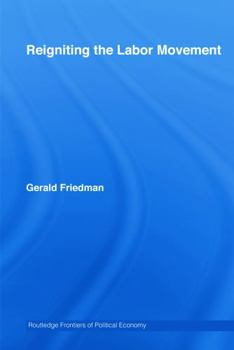Reigniting the Labor Movement: Restoring means to ends in a democratic Labor Movement
Select Format
Select Condition 
Book Overview
A century of union growth ended in the 1980s. Since then, declining union membership has undermined the Labor Movement's achievements throughout the advanced capitalist world. As unions have lost membership, declining economic clout and political leverage has left them as weak props upholding wages and programs for social justice. Since the earliest days of the labor movement, activists have debated the appropriate strategy, the mix of revolutionary and reformist goals and the proper relationship between labor unions and broader social and political movements. So long as the labor movement was growing, moving from gain to gain, debates over strategy could remain abstract, safely confined to academic quarters. Decline and impending failure, however, have now made these urgent debates.
Written in a readable style, this book uses information from sixteen countries including the UK, US, Germany and France to chart the fortunes of the labor movement over recent years. The author, based at one of the top centres for heterodox economics, examines the current debates over strategy and suggests ways of reigniting its fortunes.
Related Subjects
Business Business & Investing Economics Political Science Politics & Social Sciences




